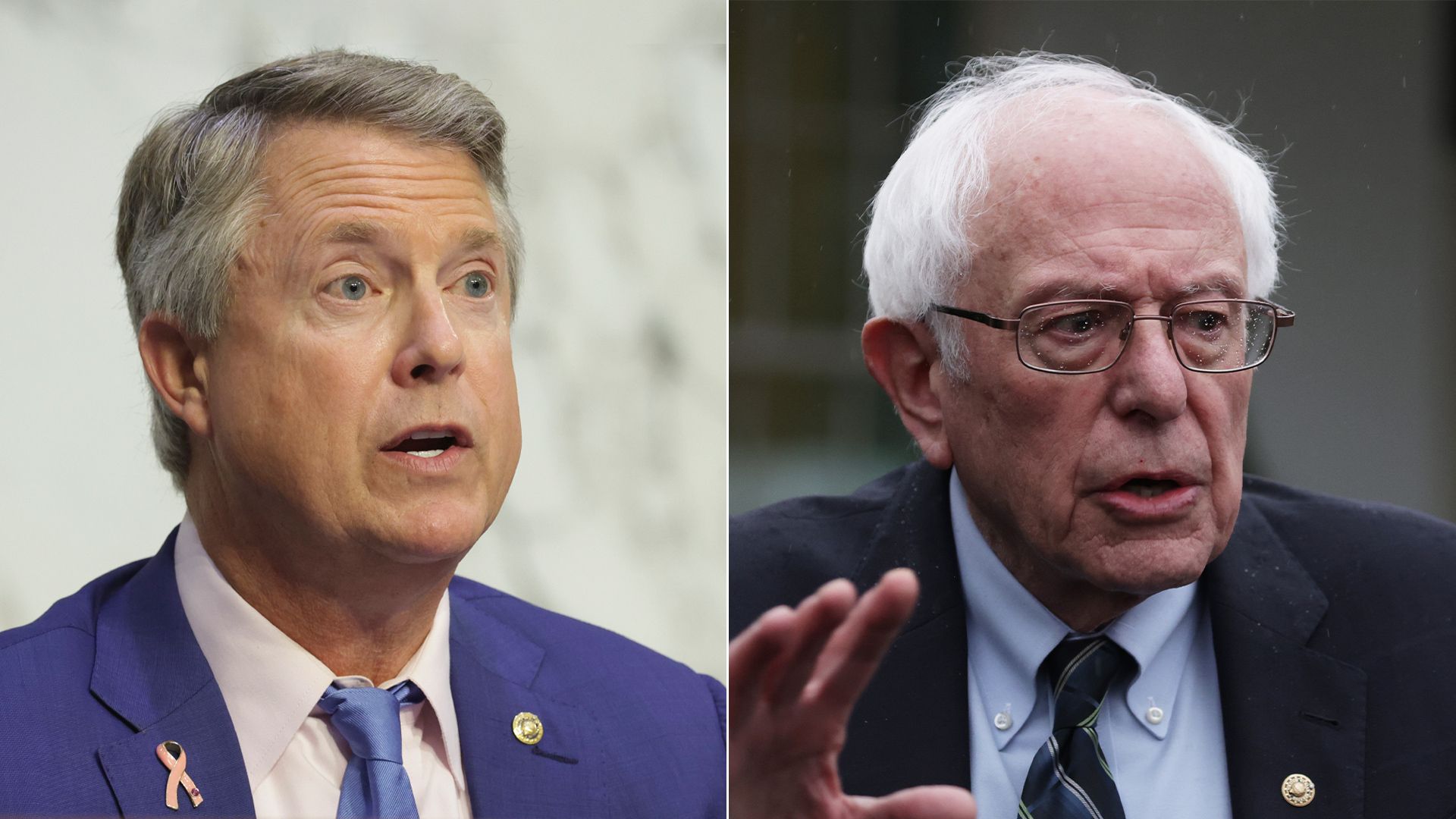
Sens. Roger Marshall (left) and Bernie Sanders. Photos: Kevin Dietsch/Getty Images, Alex Wong/Getty Images
Senate HELP Chairman Bernie Sanders announced an agreement on Thursday with GOP Sen. Roger Marshall on a bill to boost funding for community health centers and address a shortage of health care professionals, ahead of a markup next Thursday.
Why it matters: After weeks of negotiations, Sanders was able to get at least one Republican senator to sign onto the funding increases he was seeking, though they are not as high as his original legislation.
Yes, but: Importantly, HELP Ranking Member Bill Cassidy is not signed onto the deal, which leaves in doubt whether other Republicans besides Marshall will support it.
- The bill can get through the HELP Committee without widespread GOP support, but it still would need 60 votes on the floor.
Driving the news:
- The bill increases funding for community health centers to $5.8 billion per year for three years.
- National Health Service Corps funding would increase from $310 million to $950 million per year, to provide scholarships and debt forgiveness for 20,000 doctors, nurses, dentists and mental health professionals who will work in underserved areas, Sanders's office said.
- $1.2 billion in grants would go to grants to colleges for two-year nursing programs to train more nurses.
Between the lines: Sanders's office says the legislation is fully paid for, though the offsets are sure to draw opposition from hospitals and some other health interests.
- It would ban "anticompetitive" terms in contracts between hospitals and insurers.
- It also would ban facility fees for certain services like telehealth.
- And it would require off-campus hospital departments to have unique identifiers to address "dishonest billing."
What we're watching: The House could vote next week on its own measure on community health centers and other items, at funding levels that are not as high but that could get more bipartisan support.
